
Originally Posted by
huskerguy7

I recently just began this book. Dr. Kilcullen's "Accidental Guerrilla" provided a large amount of information regarding COIN; one of my favorites. Dr. Kilcullen is a great resource for not only COIN, but also both Iraq and Afghanistan. I had the chance to interview him for a piece I'm working on regarding the ANA, and we discussed some interesting ideas.
These are good questions to consider. However, each country has its own characteristics, so the answers to these can vary. My answers will assume that the country is Afghanistan.
I strongly support the idea of advisers, known as Operational Mentor Liaison Teams (OMLTs) in Afghanistan, backed by air support (it doesn't matter if it's a couple of AFBs or CVGs). Basically, there is an OMLT for every "Kandak" or battalion. Each OMLT is about 20 troops.
In my mindset, this will work if there is a structured, organized army, if the OMLTs are trained to "Western" standards, and possess some knowledge of the local languages. They should also be educated on COIN.
Tasks and Responsibilities: OMLTs will be dug in with the forces they follow. They will train local soldiers, show them "tricks" (maintaining weapons, aiming properly, etc), fight with the local soldiers, and work with commanders. They would basically provide on site training and aid, and when things get bumpy, they would call in their air support. It would also be worth considering embedding an OMLT with a logistics unit, especially in a unit like the ANA.
As I mentioned before, there is no "standard" answer for these questions. In Afghanistan, you have an organized army that is also somewhat large (it must be big enough to have a presence, otherwise a full blown force is needed), not to corrupt (it's the ANP that's corrupt), and determined. In this case, I think advisers would be the best way to operate.


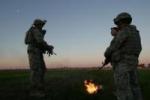


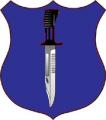

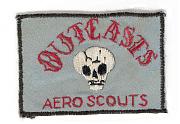
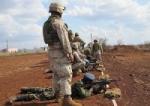

 Also, while I'm on my high horse, I do not subscribe to the view, peddled by many in the media establishment here in Blighty (multi-culturalism strikes again) that being anti-Islamic equates to Racisim; is anti-Nazism hatred for Germans or anti-Communism hatred for Russians? The Arab's were the first victims of Islam (and not the last, unfortunately)and the least we can do is help them, and others, "throw off the schackles of their own immaturity" (as Kant once said). (And you though I was cured of rants...still seeking therapy I'm afraid.
Also, while I'm on my high horse, I do not subscribe to the view, peddled by many in the media establishment here in Blighty (multi-culturalism strikes again) that being anti-Islamic equates to Racisim; is anti-Nazism hatred for Germans or anti-Communism hatred for Russians? The Arab's were the first victims of Islam (and not the last, unfortunately)and the least we can do is help them, and others, "throw off the schackles of their own immaturity" (as Kant once said). (And you though I was cured of rants...still seeking therapy I'm afraid. )
)
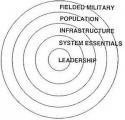




Bookmarks